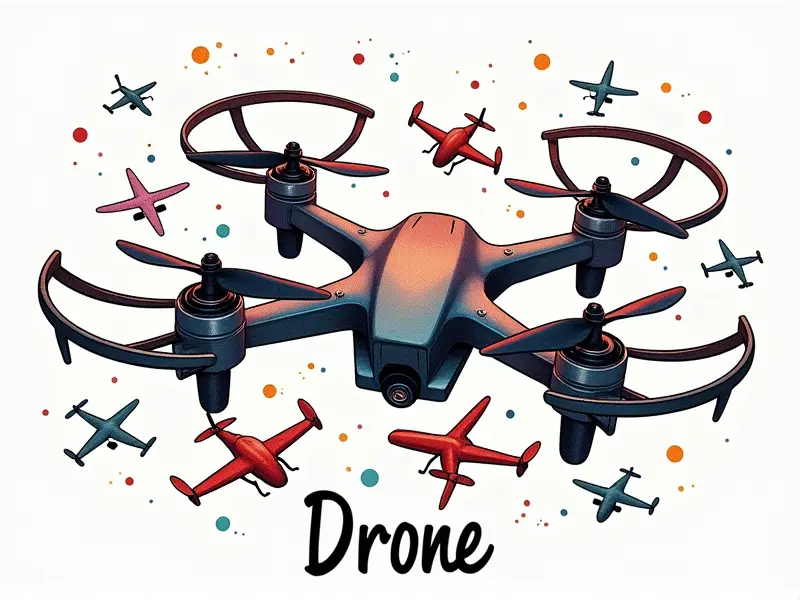Are RC foam planes any good?

Why Foam RC Planes Rule
Flying radio-controlled (RC) foam planes is an exhilarating hobby that combines the thrill of aviation with the convenience and durability of modern materials. These lightweight, durable aircraft are favored by both beginners and experienced pilots alike for their ease of use and affordability.
One of the standout features of foam RC planes is their resilience. Unlike traditional balsa wood or fiberglass models, foam planes can withstand numerous crashes without sustaining significant damage, making them ideal for learning to fly. This durability not only reduces repair costs but also encourages pilots to experiment with different flying techniques and maneuvers.
Moreover, foam RC planes are incredibly versatile in terms of design and performance capabilities. From sleek sport aircraft to scale models that replicate real-world airplanes, the variety available caters to every enthusiast's taste and skill level. This diversity ensures there is always something new to discover and master within this hobby.
Are Foam RC Planes Worth It?
The question of whether foam RC planes are worth investing in depends largely on individual interests and goals. For those seeking a low-stress introduction to the world of model aviation, foam RC planes offer an unparalleled value proposition due to their affordability and user-friendliness.
Benefits of Flying Foam RC Planes
- Durability: Foam construction ensures that even after crashes or mishaps during flight training, the aircraft remains intact for quick repairs or reuse.
- Ease of Use: Beginners can quickly learn basic flying skills without worrying about damaging expensive equipment. This accelerates learning and builds confidence rapidly.
- Cost-Effective: Compared to traditional RC models, foam planes are significantly less costly, making them accessible to a wider audience including young hobbyists or those on tight budgets.
Foam RC Planes: Fun or Fad?
The longevity and popularity of foam RC planes in the aviation hobby community attest to their enduring appeal. Far from being just another fleeting trend, these aircraft have solidified their place as a cornerstone for both recreational enjoyment and serious competition.
Should You Try Foam RC Planes?
If you're considering entering the realm of radio-controlled aviation but are hesitant about committing too much upfront investment or fear damaging expensive gear, foam RC planes present an excellent entry point. They provide an engaging way to explore this fascinating hobby with minimal risk.
The Pros of Foam RC Planes
- Resilience: Their robust construction allows them to handle rough landings and mid-air collisions without significant damage, enhancing the learning process for novice pilots.
- Versatility: Available in various designs from aerobatic models to scale replicas of famous aircraft, foam RC planes cater to diverse interests within the hobbyist community.
Best Foam RC Planes for Beginners
When choosing your first foam RC plane, it's essential to select a model that balances ease-of-use with performance. Popular choices include:
- E-flite UMX Scout: Known for its stability and maneuverability, the E-flite UMX Scout is an excellent choice for beginners looking to master basic flight skills.
- HobbyZone Sport Cub S: This model offers a simple control setup and robust construction, making it ideal for those just starting out in RC flying.
Foam RC Planes for Beginners
Choosing the right foam RC plane as your entry into this hobby is crucial. Look for models that emphasize user-friendliness and durability over advanced features like aerobatics or high-speed performance.
Are Foam RC Planes Easy to Fly?
Foam RC planes are generally easier to fly than their counterparts made from more delicate materials, such as balsa wood. Their inherent stability and resilience make them forgiving for mistakes during the learning phase, allowing beginners to focus on mastering basic flight controls without undue stress.
Advantages of Flying Foam RC Planes
The primary advantages of foam RC planes lie in their durability, cost-effectiveness, and accessibility. These attributes combine to create an inviting environment for newcomers while offering seasoned pilots opportunities to refine their skills through experimentation with different aircraft designs.
Foam RC Planes: Great for Newbies
For individuals new to the world of radio-controlled aviation, foam planes provide a gentle introduction that balances fun and education. They enable novices to build foundational flying abilities without being intimidated by high stakes or steep learning curves associated with more sophisticated models.
Conclusion
In conclusion, foam RC planes are an excellent choice for anyone interested in exploring the world of model aviation. Their combination of durability, ease-of-use, and affordability makes them suitable for both beginners and experienced pilots alike. Whether you're looking to have fun, learn new skills, or compete against others, foam RC planes offer a versatile platform that can adapt to your needs as your passion for flying grows.

